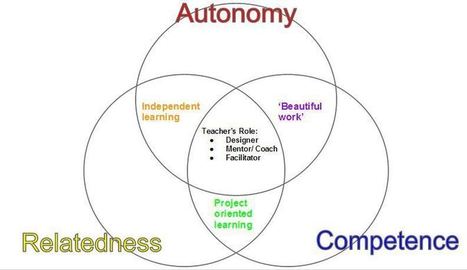Abstract
This study investigated to what extent secondary school teachers are motivated to work on their professional learning. To this end, profiles of motivational dimensions from self-determination theory were explored in a sample of 2360 teachers by means of latent profile analysis. The motivational dimensions included external regulation, introjected regulation, identified regulation, and intrinsic motivation. Additionally, the study investigated to what extent teachers' profile membership was related to their autonomy, competence, and relatedness satisfaction, and engagement in professional development. Four profiles were distinguished in the sample and were labelled ‘extremely autonomous’, ‘moderately motivated’, ‘highly autonomous’, and ‘externally regulated’. Profile membership could be predicted by autonomy satisfaction and relatedness satisfaction, but not by competence satisfaction. Moreover, teachers having profiles that had higher manifestations of identified regulation and intrinsic motivation engaged more in professional development activities. Results show the application of self-determination theory in the field of teacher learning and provide insight into what may be done to motivate teachers for professional learning.
Keywords Teacher professional development; Teacher professional learning; Motivation; Profiles; Self-determination theory; Latent profile analysis






 Your new post is loading...
Your new post is loading...



















Understanding what motivates you brings greater success!
This struck such a cord with me. I can pin point the moment when I recognised that my life was my responsibility, and can see the energy that flowed from that realisation and how it's influenced every decision and action in my life. We introduce the idea to our students in a general way, (Why is it your Mum's fault that you left your homework at home?Isn't it your responsibility?) but certainly don't help them to appreciate it deeply in their lives.
"Despite the popularity of Maslow’s Hierarchy, there is not much recent data to support it. Contemporary science [...] instead points to three universal psychological needs. If you really want to [take] advantage of this new science – rather than focusing on a pyramid of needs – you should focus on: autonomy, relatedness, and competence."